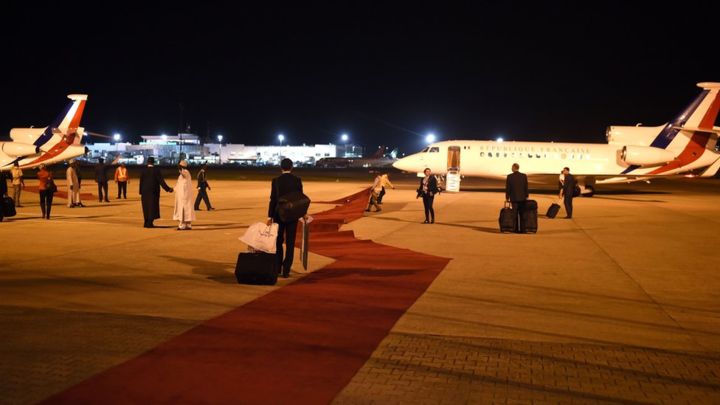- Abuja Airport Runway, Terminal Building Ready Today
The runway and terminal building of the Nnamdi Azikiwe International Airport, Abuja will be ready today (Monday), the Federal Airports Authority of Nigeria has said.
According to FAAN, the airport will be ready two days before the April 19 scheduled date announced by the Federal Government for the reopening of the terminal to air traffic.
The Abuja airport was shut on March 8 for six weeks in order to allow Julius Berger to reconstruct its runway and taxiways. During the period of its closure, the contractor carried out rehabilitation work on its terminals.
The Managing Director, FAAN, Mr. Saleh Dunoma, was quoted in a statement by the agency’s consultant on Sunday, as saying “We will be ready by Monday, April 17, but we are leaving the remaining two days for the Nigerian Civil Aviation Authority because it has to certify the airport that what we have done is in accordance with its standards.
“If they (NCAA’s officials) do that, we will bring in the traffic. But if they do not, we have the opportunity of making corrections within the two days we have saved.”
On the reopening of the runway on April 19, Dunoma said, “No doubt about that, we will open it as scheduled. Just as I have said, we have been working with the NCAA throughout the period; they have been making corrections. But for formality, we need to check and make sure that all the necessary corrections meet the requirements of the civil aviation authority.”
He said that the terminal building too would be ready by today (Monday), adding that all faulty items and services at the airport were being fixed.
“We are improving on all the services there and repairing all the items that are bad. It (terminal) will be ready by Monday (April 17). Most of the items there have been completed; we are just trying to clean up,” Dunoma said.
Giving a breakdown of the completed work on the facility, the FAAN boss said, “All the critical items of work are 100 per cent except maybe two items, which of course are the markings and the cleaning. Asphalt work is 100 per cent; markings have reached almost 70 per cent; the airfield lighting system has reached 80 per cent.
“There is additional work, which has nothing to do with this repair but we are seizing the opportunity of the closure of the airport to do. This has to do with the APEX — (Airport Excellence in Safety) related items. We are now levelling all the airfield lightings’ locations, all the installations and flash with the ground surface. In case of any skidding, there will not be concrete projection above the ground surface.”
Dunoma said the authority had not tampered with the calibration of navigational aids but only worked on the runway.
He added, “What we tampered with are the airfield lightings, and the airfield lightings are being returned to the same position. The runway does not need calibration. All we need to check is to make sure there is 100 per cent illumination. Calibration is done periodically. When the time comes for calibration, the appropriate authority will calibrate the Instrument Landing System.”
Meanwhile, the Director-General, NCAA, Capt. Muhtar Usman, has said that the runway of the airport is 99 per cent complete.
Usman, in the statement, disclosed this after the agency had carried out an audit on the runway, saying “Today, the NCAA along with the airport owner, FAAN, conducted an inspection. We were able to see that the job has been done well up to at least 99 per cent completion. We believe the remaining work will be completed on or before the official opening date.”
He said the non-safety critical components that should be corrected, which were observed by the NCAA at the runway, would not stop the reopening of the airport.
Usman said, “The findings have been communicated to the owner of the airport, FAAN. We are expecting a corrective action plan that will come with timelines that will address those issues. But as I mentioned earlier, those items that we found are not safety critical and cannot affect the opening. The job has been well done. The technology employed is the latest and we believe Nigerians will be happy.”
An official of Julius Berger, who was part of the inspection, Dr. Lars Richter, said the newly completed runway would last for 10 years.
“The runway is of the highest quality. We can say for the next 10 years, it will remain there, of course, with good maintenance,” he said.


 Forex2 weeks ago
Forex2 weeks ago


 Naira2 weeks ago
Naira2 weeks ago
 Naira4 weeks ago
Naira4 weeks ago
 Company News4 weeks ago
Company News4 weeks ago
 Billionaire Watch1 week ago
Billionaire Watch1 week ago




 Naira2 weeks ago
Naira2 weeks ago




 Naira4 weeks ago
Naira4 weeks ago




 Naira1 week ago
Naira1 week ago





















